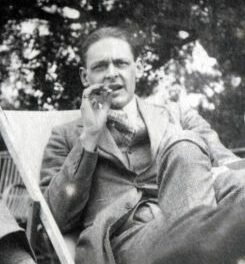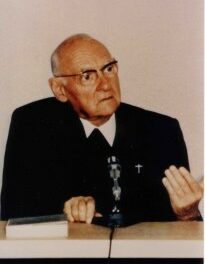We support our Publishers and Content Creators. You can view this story on their website by CLICKING HERE.
To what extent Colonel Edward House’s novel “Philip Dru” contributed to the Wilsonian transformation of the Democratic party will likely never be known. But we do know that Woodrow Wilson read the book, brought House to the White House, and relied on House for advice and companionship.
Philip Dru: Administrator – A Story of Tomorrow, 1920-1935, by Edward Mandell House (published 1912; reprint edition, WP, Illustrated edition, 2010, 168 pages)
You are about to read what will essentially become the review of a book that was written more than a century ago. How untimely, you might be muttering to yourself as you contemplate whether or not to read on. I worried about just that sort of reaction as I contemplated writing this essay. But on second thought, what could be more timely, given the subject of the book and the times we are living in?
In fact, in another sense the timeliness of offering some commentary on this book is almost eerily perfect. Here we are in late 2024, making it almost exactly 100 years since the death of former president Woodrow Wilson on February 3, 1924.
Woodrow Wilson? What could he possibly have to do with a futuristic novel written by a then relatively obscure Texan? Not much, it would seem. Texas, after all, was far removed from New Jersey, where a former Princeton University professor and former president of that very same university just happened to be the governor of New Jersey. Well, as of 1912 that same governor also just happened to be running for president. Hmmm, the plot begins to thicken. Maybe, just maybe, thought Edward Mandell House of Texas, a fellow whose given name was Thomas Woodrow Wilson might be interested in reading what he had written.
Colonel (the title was honorary rather than earned) Edward House may have been geographically far removed from Governor (and soon to be President) Woodrow Wilson. But intellectually and politically he was not at all removed from the professor-turned-politician. As of 1912, he knew this, but Wilson did not; hence the “colonel’s” decision to send a copy of his just-published novel to the president-elect for his reading pleasure… and instruction.
The time was late fall, 1912. The reading location was Bermuda, where the incoming president was vacationing, recuperating, and preparing after becoming only the second Democrat since the Civil War to win the presidency. Wilson’s victory, of course, was made possible by the split within the Republican party between the incumbent president William Howard Taft and former President Theodore Roosevelt.
The only other post-Civil War Democrat to have captured the White House was, of course, Grover Cleveland. Wilson was a young Princeton professor during Cleveland’s first term, and he was, to put it mildly, not a Cleveland fan. In fact, in his published writings Professor Wilson had made it quite clear that it was time for the country—and his party—to move away from the Cleveland philosophy of a federal government of very limited powers and activities.
In his recently published book, Over Ruled, Justice Neil Gorsuch takes the reader on a brief tour of Professor Wilson’s thinking. As early as 1887, a barely thirty-year-old Wilson was contending that it was time that a new “science of administration” begin to “straighten the paths of government.” Perhaps it’s worth noting that 1887 just happened to be right near the end of that initial Cleveland term as president.
The United States may have acquired its constitutional system of government from England, but Wilson thought that it was high time for this country to pay much more attention to the success of German-style bureaucracy and its goal of achieving the “utmost possible efficiency” in government. As Gorsuch notes, Wilson even conjectured that if those who had drafted our Constitution could somehow manage to have been reborn a century later, they would likely be the “first to admit that the only fruit of dividing power had been to make it irresponsible.” (The line belongs to Wilson, not Gorsuch.)
But confined as they were to the late 18th century, the Founders had not been able to tap into Woodrow Wilson’s wisdom. Left to themselves, they apparently could do little more than draft a Constitution that was fatally designed to resolve “too many questions by vote rather than by scientific judgment.” (That’s Gorsuch’s estimate of Wilson’s estimate of the Founders.)
Apparently, it had never occurred to the young professor that James Madison and his compatriots might have had a different idea in mind—namely that the point of dividing powers was not to ensure irresponsibility, but to help ensure that only good laws would eventually be passed, and responsibly so.
Ah, but then by the late 19th century this wondrous thing called science had come along to cloud the mind of a certain Princeton professor. Just think, he mused, what science could do when it was applied to the grimy game of politics. Better than that, think what scientific experts could do for the country.
Before too many years had passed, Professor Wilson’s youthful dream had become the ultimate dream of the entire progressive movement. Of course, these experts would be apolitical. They would always concentrate on doing the most efficient and the most scientifically correct thing, rather than doing anything that smacked of anything remotely political, much less anything that was in any way deemed to be politically correct.
A century ago, the progressives were also bipartisan in that each of the two major parties had a progressive wing. Nationally, that might not quite have been the case as of 1912. After all, the Democratic party still had its retrograde Cleveland wing. It had also suffered through its three-time losing flirtation with Bryanite populism, the last round of which was William Jennings Bryan’s loss to William Howard Taft in 1908. That brings us to 1912, at which point the party hadn’t quite yet made up its mind where it was, much less where it was going, when it selected New Jersey Governor Woodrow Wilson as its candidate for president.
In that 1912 campaign, Wilson ran on a platform that was designed to counter the big government progressivism of Theodore Roosevelt and his newly founded Progressive party, as well as the milder version of progressivism offered by the incumbent Republican president, Taft. (As far as Roosevelt was concerned, he decided to run in 1912 because Taft had failed to live up the acronym that was his last name: TAFT or Take Advice From Theodore.)
Wilson countered both versions of progressivism with his program for promoting what he called the New Freedom. In general, it was warmed-over Jeffersonianism, in that it was a call to reduce bigness in business without creating bigness in government. How so? With one hand, he would break up monopolies; with the other hand he would cut back on tariffs, which had produced a good share of federal government revenue in that pre-federal income tax era.
After assuming the presidency, President Wilson jettisoned much of his Jeffersonian campaign rhetoric and progressively moved in the direction of Roosevelt’s New Nationalism version of big government progressivism. In short order there would not simply be a federal income tax, but new federal institutions such as the Federal Reserve system and the Federal Trade Commission. The campaign of 1912 might have been the first time that the Democratic party had been, shall we say, less than fully candid about its true intentions, but it would be far from the last.
In any case, by 1916 and Wilson’s campaign for re-election, it would be fair and accurate to call the progressive movement a fully bipartisan affair. Woodrow Wilson had seen to that. To what extent Colonel House’s novel contributed to the Wilsonian transformation of the Democratic party will likely never be known. But we do know that Wilson read the book, brought House to the White House, and relied on House for advice and companionship, until their falling-out during the Paris peace conference of 1919.
At least that much can be known. What can be readily surmised is that the novel itself offers much more than a telling glimpse into either the mind of a certain honorary colonel or that of the object of the colonel’s intentions. Here the assumptions and goals, the promises and aspirations, the do’s and don’ts, of progressivism in full bloom are on equally full display.
***
The novel opens in 1920. Philip Dru is about to graduate from West Point at a moment when the country seems to be on the verge of open rebellion: The “few were about to strangle the many,” and the “great masses” (were) sullen and full of rebellious discontent.”
What is a freshly minted second lieutenant to do when the “interests of wealth” are at stake, and the army is being used by men of great wealth for “purposes of intimidation” and the “petty conquest” of their domestic enemies?
Philip Dru’s misgivings aside, he accepts his assignment to a military post in Texas only to develop an eye problem that ends his military career before it had a chance to begin. His next stop is New York City, where the gap between rich and poor appalls him. There House’s hero begins a new career as a writer, whose muckraking goal is to expose corruption as his way of contributing to the creation of a new society, a society that would be “properly organized so that “today’s civilization” would one day appear to be as “crude and selfish and illogical as the dark ages.”
It is during these muckraking days that Philip Dru realizes that he must turn directly to politics to achieve his goals. But since wealth had “corrupted both parties” he would have nothing to do with either of them. Novelist House then introduces one Senator Selwyn of Pennsylvania, who is at once wealthy and a puppet of those much wealthier than he. But he is also a puppeteer of sorts himself when it comes to dealing with the masses, as well as with ambitious younger politicians on the make.
But then an underling, who had convinced himself that the country needed “but a spark to explode,” decides to expose Selwyn’s wheelings and dealings to the press. Newspaper accounts would soon provide the needed spark, thereby making it clear to “millions that a crisis had come and that revolution was imminent.” If nothing else, House does hurry things along.
Suddenly Philip Dru reappears at a mass meeting in New York City to urge “no violence, but careful planning.” In any case, now that Philip is back in the picture “the contest was on.” Dru’s best intentions aside, what was to have been a political and educational “contest” soon becomes a series of military battles instead. Almost overnight, America’s second civil war is underway.
And why not Philip Dru, West Pointer with apparently recovered eye sight, as the leader of the insurgents? Now it was Philip Dru, military strategist instead of either Philip Dru the crusading journalist, or Philip Dru as an early version of a community organizer. With rising support among increasingly discontented farmers and laborers, Philip Dru, commander, organizes a makeshift army that moves on Chicago and occupies the city. Success there leads government forces to retreat all the way to Buffalo, New York. Meanwhile, Dru’s forces have taken Duluth, as well as all key lake ports all the way to and including Cleveland.
It all made perfect sense to Colonel House. After all, the “conscience of the great mass of people, east and west,” was with Philip Dru. They somehow knew that he would somehow guarantee that the nation would once again “become a land of freedom in the truest and highest sense.”
But one final battle remained to be fought. With nothing less than “human liberty” hanging in the balance, one million men face each other just outside of New York City. Dru may be outnumbered, with only 400,000 troops to the government’s 600,000. But no matter. Philip Dru looked the part of the “terrible God of war” and prevailed. The stage was finally set for a “glorious and contented future.”
If this “novel” has been sounding too much like a melodramatic potboiler, you would not be mistaken to have arrived at such a conclusion. But House was far from finished. In fact, victory in this civil war takes place at roughly the half-way point of the book. Calling it a novel—or even a melodramatic potboiler—from this point on is at best a stretch. The title of Chapter 25 (of a total of 53) gives the new game away immediately: “The Administration of the Republic.” What we have in the remainder of the “novel” is less a story than a laundry list of recommendations for organizing and conducting a new government in post-Civil War II America.
President-elect Wilson may or may not have been caught up in the melodramatic rise to power of Philip Dru, but in all likelihood Colonel House wanted the new president to pay closest attention to his policy and organizational recommendations. Just to make certain that Wilson–or any reader–would do just that, House put these publicly pronounced words in Philip Dru Administrator’s mouth: “Any attempt to foster the powers of the late government would be regarded as seditious and would be punished by death.”
House then had Dru announce that he would “assume the powers of a dictator, distasteful as that might be to him.” Distasteful or otherwise, Dru regarded such a step as “necessary” in order to “purge” the government of the “abuses that had arisen.” He then concluded his remarks by proclaiming himself to be the “administrator of the republic.”
Are republics run by administrators? Apparently Dru (and House?) thought so. Are republics run that way now? No doubt Dru (and House and Wilson) hoped so. Is such a result a good idea? No doubt Dru (and House and Wilson) believed that to be the case.
And just how did Philip Dru acquire power? It’s never quite clear. But not to worry about such grubby, even petty, details. The newly crowned (or should that simply be acclaimed?) administrator would never become a dictator. After all, he had promised as much. In fact, hadn’t he pledged to retire once the “contemplated reforms” had been put in place? Of course he had. House does not record the crowd’s reaction to Philip Dru’s pledge. He simply, and matter of factly, lets it be known that “no one doubted” the administrator’s “word.”
In the meantime, the administrator who was not yet a dictator increased the size of his new government’s army from 500,000 to 600,000. Dru also began consulting with Senator Selwyn, who, much to the administrator’s surprise, was “not without patriotism”; therefore, why not put him in charge of overhauling the machinery of both the federal government and all state governments?
Then comes a new “code of laws.” Are they decreed or enacted? House never quite makes that clear. But it’s a small matter anyway, given the administrator’s pledge to act forcefully, but then retire. However, the date or the reason for that retirement is also never made clear.
However, many other things are made quite clear. There will be a graduated income tax with no exemptions. Its maximum will be 70% on ten million dollars and above. False returns would result in prison sentences. Whether or not there would be a jury trial before a sentence would be handed down is also left somewhere up in the air.
States and state government would apparently continue to exist, but Dru anticipated that the scope of state authority would be dramatically limited. Once again the devil may have been in the details, but the details are vague. Dru simply announced that the central government should “take over many things in the name of efficiency and the general welfare.”
Where does all this leave the Constitution of 1787? Just about where the young Woodrow Wilson thought it belonged—namely somewhere in the dustbin of history. In Dru’s (House’s?) estimation that document may have served the country well for its first century, but “now” (meaning some time between 1920 and 1935) it is “not only obsolete, but even grotesque.”
Dru’s (and House’s?) ultimate solution was to make the American system of government more responsive and more efficient rather than more democratic. Some progressives favored such power to the people reforms as initiative, referendum, and recall. But Dru (and House?) did not. As far as they (?) were concerned, each of the three was a “clumsy weapon.”
Apparently in the name of efficiency, House members would serve for six years, not two, while senators would hold office for life. Presidents would be held to a single ten-year term with no possibility of a second term. But contradicting his judgment that recall is a “clumsy weapon” Dru (and House?) do make provisions for recalling House and Senate members, as well as presidents and federal judges.
Near the end of the series of chapters dealing with Dru’s (and House’s?) plans for a post-Constitution-of-1787 America, the semblance of a story returns. At the heart of it is Dru’s evolving relationship with Senator Selwyn, who has come to ”love Dru as a son.”
In the concluding chapters the two work together to put in place what we have come to call the administrative state, which has proven to be something other than the apolitical, expertise-driven state that Dru (and House?) envisioned.Then again, a hint of things to come might be seen in the alliance between Dru and the highly political Selwyn.
That alliance complicates things, for Philip Dru in more ways than one. It seems that Selwyn’s daughter Janet also loves Dru—and as someone other than a son. At this point in the story House brings one Gloria Strawn back into the picture. The sister of a West Point classmate and friend of Dru’s, Gloria has doubled as a Philip Dru love interest and political ally/confidante all along the way, meaning from his post-West Point Texas days to this temporary national dictator days.
So who will it be for Philip Dru Administrator, Janet Selwyn or Gloria Strawn? Or neither one? It is right there that House leaves things hanging, while holding out the possibility that “mankind” might wind up as his only “wife and mistress.”
Meanwhile Dru is growing more and more interested in applying his administrative talents to matters more international than national. His first target is Mexico. An army is organized, and an invasion is planned. But no battle takes place. The Mexican army flees, and the “rout is complete.” There is no annexation, but the country is “now under the protection of the United States.”
If Dru is disappointed, House doesn’t tell us. Always administratively minded, Dru seems to be content to promise the benighted Mexicans that they will henceforth have the “benefit of the most enlightened of educational systems.” Perhaps not so coincidentally, come 1913-14 President Wilson will find himself trying to “teach” the Mexican people to “elect good men.”
Before long Philip Dru’s interests and reach extend far beyond both the United States and Mexico. And of course, before Wilson’s presidency is over he is trying to “make the world safe for democracy.”
Seven years into his reign as “administrator,” Philip Dru has learned to speak German, French, and Spanish. Next on his list of languages to master is “Slav,” a task he was attending to “at odd moments.” During other odd moments he is “seeing more and more of… Gloria” (ellipses added).
As the curtain falls, Philip and Gloria head west from Washington, D.C. “on a golden fall day.” Their destination is San Francisco. Somewhere along the way Philip confides to Gloria that he has decided that it is “essential for the country’s good to leave it for awhile, perhaps forever.” If he remained in the United States he would be a “constant menace to my country.” Instead, “I shall go to some obscure portion of the world where I cannot be found and importuned to return.”
Only then does he pop this question: “Will you come with me, Gloria.” It wasn’t quite the question, but it was apparently all that House could bring himself to have Philip Dru bring himself to ask. And the answer? She agrees. Soon thereafter Philip Dru and Gloria Strawn, as opposed to Mr. and Mrs. Philip Dru, “sailed west from San Francisco.” And that, for Colonel Edward House, the one and done novelist, is that. Having arranged a post-Civil War II marriage between the American people and their new government, no other marriage is apparently necessary or important.
And the country? Thanks to Philip Dru Administrator, everyone he and Gloria have left behind can breathe a collective sigh of relief. All has been set right, the necessary progressive reforms have been put in place, and the country will have been spared the “menace” of a permanent dictator. Or should that read: And the country had been spared the menace of the boot of a permanent dictator to boot?
But what about the permanent presence of the administrative state that Philip Dru bequeathed to his fellow Americans a century ago? To be sure, it continues to function today. But does it function as Dru and House and Wilson intended that it function? Or not? And if not, what would Dru or House or Wilson say about the state of their institutional handiwork, if they could magically arrange to be on hand in 2024? Has that handiwork become too powerful and too political? If so, would they commend this result or criticize it? Or would each of them simply shrug his shoulders and say, “that’s your problem, not mine.”
The Imaginative Conservative applies the principle of appreciation to the discussion of culture and politics—we approach dialogue with magnanimity rather than with mere civility. Will you help us remain a refreshing oasis in the increasingly contentious arena of modern discourse? Please consider donating now.
The featured image is courtesy of Pixabay.

 Conservative
Conservative  Search
Search Trending
Trending Current News
Current News 






